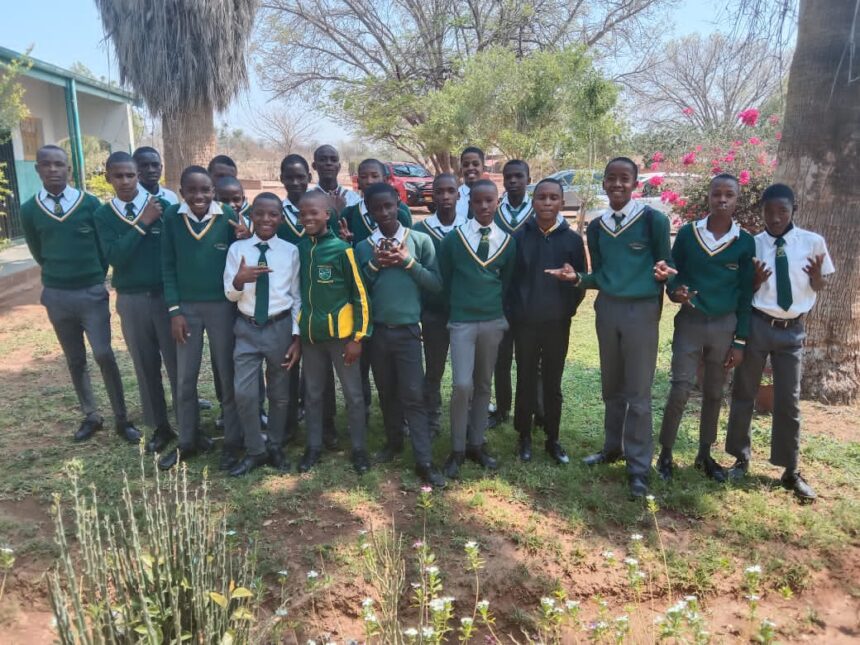The Oshikoto education directorate will host a boys’ seminar on Friday at the Etosha Secondary School in Tsumeb under the theme ‘Raising champions for tomorrow’.
The seminar is part of the ‘The Next Step – A boy’s journey to manhood’ project by the directorate.
Over 100 boys from the Etosha Senior Secondary, Opawa Junior Secondary, Tsumeb SS, Otjikoto SS and Tsintsabis Combined School will be participating on Friday.
Speaking to Youth Corner, Oshikoto education director Aletta Eises stated that boys need to be guided on how to handle emotional stress, societal challenges, and the dynamics in society, physiological challenges, and vulnerabilities.
“We have purposefully selected Tsumeb schools as we are experiencing most of the dropouts of boys and underperformance in Oshivelo circuit. We selected only grade 8 boys, as we want to catch them while they are at the entry level of secondary school,” she explained.
Eises further said the rite of passage of a young man from boyhood to manhood in any given society or culture is one of the most critical life-changing experiences for such a young man.
“It is about the boys in contemporary society who get lost in the shuffle of everyday life, thus, finding ways to rescue these young men and boys, ensuring the posterity and prosperity of our great nation and restoring the meaning of respect, responsibility, discipline, manhood, and fatherhood; developing confident, loved, affirmed, and empowered young boys and men,” she narrated.
According to Eises, so much has been written and said about the rite of passage and the role of government and its relevant institutions, parents and society at large in the transition of young men from boyhood to manhood, yet, so little has been accomplished in contemporary societies the world over, amidst the increasing effect of technology, globalisation, the rat race life of parents, single parenthood, stepfather/motherhood, and orphanhood.
“Today’s boys rarely, if ever, learn from the adults closest to them what it means to become a man or learn when they have become one.
Instead, many of them are left to search for answers in movies, song lyrics (mostly rap and hip-hop), the often ill-informed perspectives of their peers, and the mixed, even contradictory, messages coming from other ‘grown-ups’ around them.”
“Consequently, we have too many of these young men limping through life.
They are confused, hurting, and feeling terribly incomplete,” she stated.
Furthermore, Eises said, this situation is backed by recent reports on education and disparity in gender performance and graduation ratio.
The cursory statistics have shown that drug use, school dropout and crime rates are high, especially in Tsumeb.
In general, Namibian correctional facilities are populated by young boys and men between the ages of 18 and 35, in increasing numbers.
“These national statistics and status mirror the situation in the Oshikoto region like any other region. But we have taken a stand as a directorate that our boys cannot go down and be left behind under our watch.
Therefore, the boys’ initiative is to guide, direct and lead the boys in the ways they should go and change their conduct,” she stressed.
She added that Life Skills teachers, mentors of the boys, principals, community members and parents are invited to the event.
– fhamalwa@nepc.com.na



